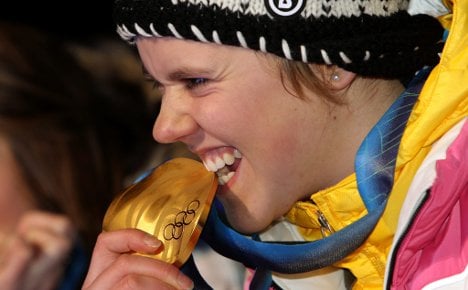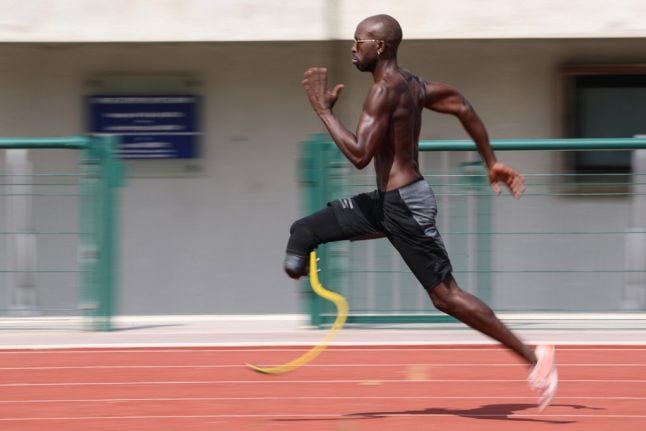The 20-year-old Olympic debutante sprang a huge surprise to upset the field and win the weather-affected event ahead of Slovenia’s Tina Maze and overnight leader Elisabeth Görgl of Austria.
“I have had a look at the medal table,” said Rebensburg, whose previous best finish on the elite World Cup circuit was a second in this season’s giant slalom in Cortina.
“I’m happy to have contributed a medal to that. It’s cool – pretty awesome,” she said.
Germany, with an overall haul of 28 from eight gold, 10 silver and seven bronze, now stands clear of both the US and Canadian teams, who have won seven golds apiece.
Rebensburg overshadowed better-known team mates Maria Riesch, who last week won super-combined gold, and Kathrin Hoelzl, the leader of World Cup giant slalom standings.
“She should experience this moment, right now in this moment,” Riesch said of Rebensburg. “Because it all goes by like a film and tonight she will shake her head and wonder what happened.”
Rebensburg, a former world junior champion, admitted that she had been under less stress than her team-mates and rivals.
“I don’t think I had as much pressure as the top three but I know I can ski fast and win a race, so I made my own pressure.
“I was able to accelerate in the last part. If you don’t take any risks, you won’t win anything.
“I was able to show I could do it with the podium in Cortina. Everything just came together here. It’s just fabulous to get a medal.
“It’s unbelievable,” said the German. “I don’t know what to say. It just sounds so strange.
“It’s going to take a few days to sink in. I just want to enjoy the ceremony and the rest of the day. We’ll celebrate tonight.”
Silver medallist Maze became the first Slovenian to win two Olympic medals after also claiming a silver in the super-G.
“Yeah, I did want gold,” acknowledged Maze, who missed out by just four-hundredths of a second.
“It was my wish today, but still it is a silver medal and I won two medals in this Olympics. It’s a big deal. It’s a big day for me.”
Görgl added bronze to her third-placed effort in the downhill, but refused to rise to the bait on why her male team-mates were failing to bother the medal engravers.
“Ask the guys,” she said. “You’re asking me questions I cannot explain!”





 Please whitelist us to continue reading.
Please whitelist us to continue reading.
Member comments